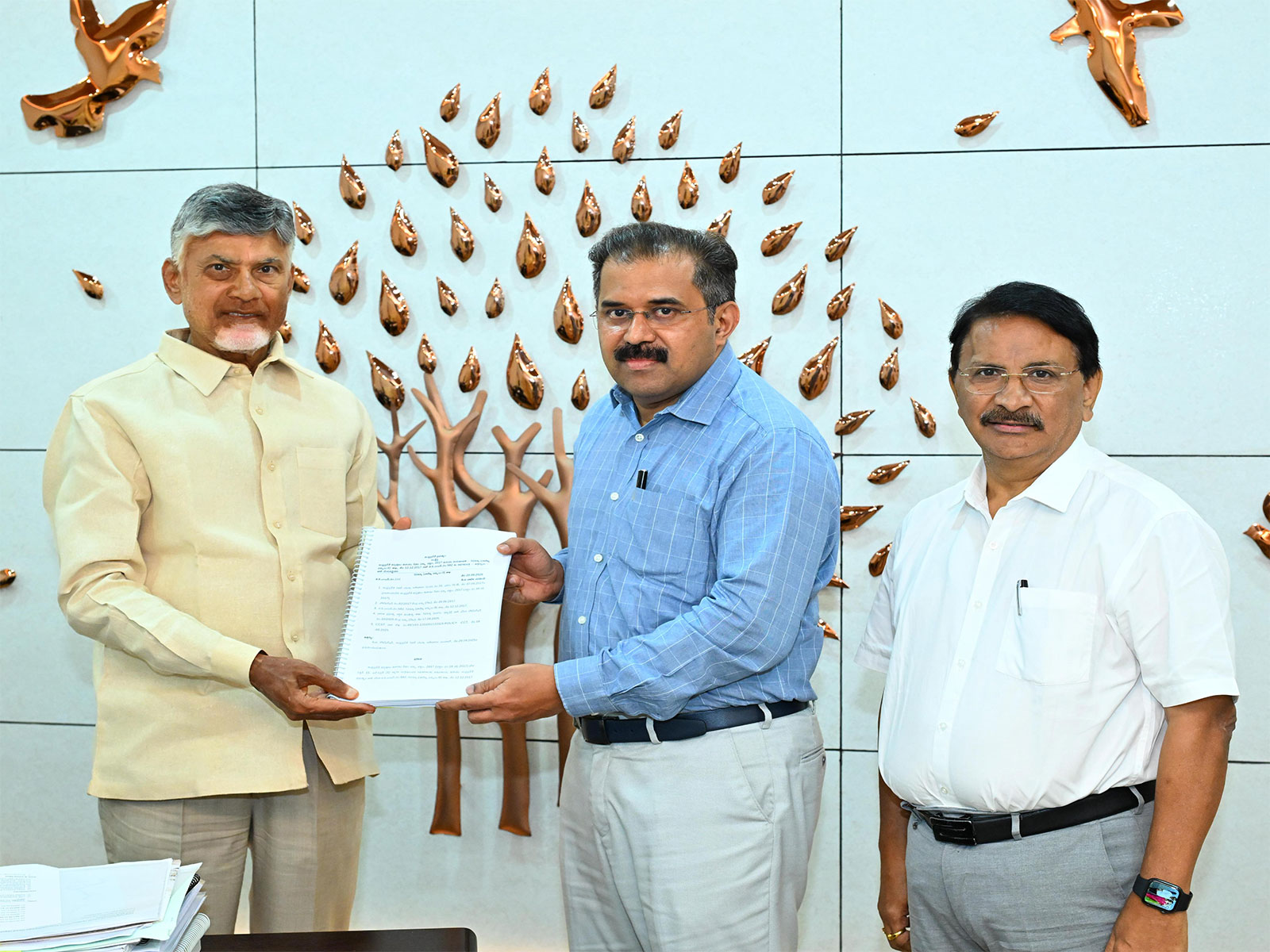Amaravathi (Andhra Pradesh) [India], September 21 (ANI): Andhra Pradesh Chief Minister N Chandrababu Naidu released a booklet on the Government Orders issued in the Telugu language as part of GST 2.0 reforms at his camp office here on Sunday while reviewing with officials on state taxes, a press release stated.
In a major step towards bringing administration nearer to people, the Commercial Taxes Department issued 11 GOs in the Telugu language for the first time to reach the common man. As a result, now people can read Tax GOs in their mother tongue, Telugu, easily.
It may be noted that as anything read in their mother tongue reaches heart easily, the innovative move of the Commercial Taxes Department hailed by all the stakeholders in both the Telugu states including thousands of dealers, accountants, officers, staff and professionals, according to the Chief commissioner of State Taxes and Commercial Taxes Babu A.
The two-tier GST 2.0 next-gen reforms, which are coming into force from September 21 midnight, are going to benefit all sections of people in a big way. The GST 2.0 reforms are expected to further strengthen the Indian economy with additional revenue of Rs 2 lakh crore.
“The next Gen GST reforms introduced with an aim of a people-first policy will benefit every household, farmers, students and several sectors. The new GST reforms are expected to provide a dividend of Rs 8000 crore to the people of Andhra Pradesh. The increasing purchasing power with reduced GST will help the growth of the MSME sector and employment generation in a big way. The new GST reforms, focusing on the health of people, lifted GST on some of the life-saving medicines and health insurance premiums,” the CM said.
The Andhra Pradesh Assembly also passed a resolution supporting the GST reforms, and Chief Minister N Chandrababu Naidu said the rationalisation of the GST structure will directly benefit the common man and enhance transparency in the tax system. He said the GST reforms will contribute to the sustained growth trajectory of the Indian economy.
The new GST reforms will provide a great relief to the common man with reduced prices of essential commodities, with a cut in GST from 18 per cent to 5 per cent. For example, the GST on butter, ghee, paneer, soaps, shampoo, toothpaste and hair oil, processed food, biscuits and coffee was reduced to 5 per cent. Pasteurised milk, packaged paneer and breads were exempted from GST.
Giving great relief to the middle-class sections, the GST on two-wheelers, small cars, TVs, ACs and cement was reduced to 18 per cent from 28 per cent. Likewise, the GST on Sweets, chocolates and ice creams was reduced to 5 per cent.
“Farmers are going to benefit in a big way with a cut in GST from 12 per cent to 5 per cent on agricultural inputs and tractors. The reduced slabs of GST is expected to increase in sales from 5 per cent to 10 percent and savings of Rs One lakh crore for consumers,” he further said.
The GST cut in the services sector and hotel accommodation is going to bring down hotel tariffs and pave the way for an increase in tourism. The GST on handlooms and handicrafts was reduced to 5 per cent to protect the interests of traditional artisans and provide an opportunity for an increase in exports of traditional Yetikoppaka and Kondapalli toys and handlooms.
At the outset, the GST reforms will help to achieve a happy, healthy and wealthy Andhra Pradesh and to establish a zero-poverty state. The GST 2.0 reforms will help to fulfil the ten guiding principles of state government to root out poverty, development of human resources, skill development and employment, water security, farmers’ welfare, development of logistics, development of handlooms, handicrafts, Swachandhra, according to Chief Commissioner of State Taxes and Commercial Taxes Babu A. (ANI)
The article has been published through a syndicated feed. Except for the headline, the content has been published verbatim. Liability lies with original publisher.







